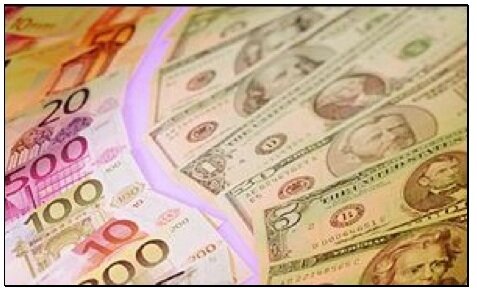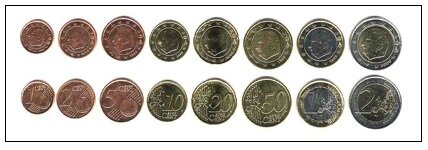
Belgium Currency is the Euro
No doubt, if you're traveling to Brussels, you'll want to know what the Belgium currency is. Quite simply, it's the Euro and quite easy to make the switch from dollars, pounds and other international currencies.
When we first moved here, the Belgium currency was the Belgian franc. At that time, we received 40 Belgian francs for every dollar. It was a bit overwhelming to request 40,000 Belgian francs from a cash machine for every $1000 withdrawn. Just as we got used to the Belgian franc, the Belgium currency changed to the Euro - the new Eurozone currency. From one day to the next, Belgian Francs were exchanged for Euros and voila, we had brand new crisp Euro bills and coins.
Surprisingly, the transition was pretty simple...although we think the 1 and 2 cent pieces are quite a nuisance to keep up with.
Using Euros
Euros bills come in denominations of 5, 10, 20, 50, 100 and 500 euro bills. When using your debit card to withdraw funds from your bank account, you will normally be offered denominations of 5, 10, 20 and 50 euro bills.
Euro coins come in denominations of 1-cent, 2-cents, 5-cents, 10-cents, 20-cents, 50-cents, 1-euro and 2-euro coins. One can collect quite a few coins over the course of a few purchases so we recommend buying a little plastic money holder that keeps coin denominations separate. We've spent many an embarasing moment at the cash register digging through pockets of coins for the right combination!
How To Access Your Money in Belgium
If you are traveling to Belgium, we advise bringing a few Euros with you to use until you get to a bank or cash machine. It's best to request Euros from your local bank a week or so before your departure date as some banks do not keep Euros and will have to order them from their regional headquarters.
Bring with you at least 50-100 Euros in case you need something at the airport or as soon as you get to your hotel. You will save money by using your debit card in Brussels for Euros and NOT using the airport exchange stands. Banks simply give better exchange rates than the airport stands do.
Finding Current Exchange Rates
The value of the Euro generally fluctuates a cent or two (or three!) either way in the course of a normal trading day. It's a good idea to check the exchange rate before leaving home and learn how to calculate the value of 1 euro to your local currency. Then you can multiply by 100 or 1000 as you withdraw money to get an idea of how muc you are pulling out of your home account. You can check the exchange rate at http://www.xe.com/ucc/

Click here to learn more about the Brussels Grand Place Guide.
About Traveler's Checks
Although Traveler's Checks used to be popular with overseas travelers, today, many places don't even accept them. Better to use your credit card for purchases or your debit card for purchases and cash.
What To Do If Your Credit/Debit Cards Are Lost or Stolen
It happens and it's happened to us! On trips to London and Paris we have experienced lost and stolen wallets containing credit and debit cards. While you aren't liable for charges made with the cards, you do need to alert your bank as soon as possible so that a 'Stop' can be put on the card. Our advice: carry those credit and debit card numbers and company contact information in a separate place on your person or in your suitcase. Call the numbers immediately.

Return from Belgium Currency
to Brussels-Belgium-Travel-Guide.com Homepage



